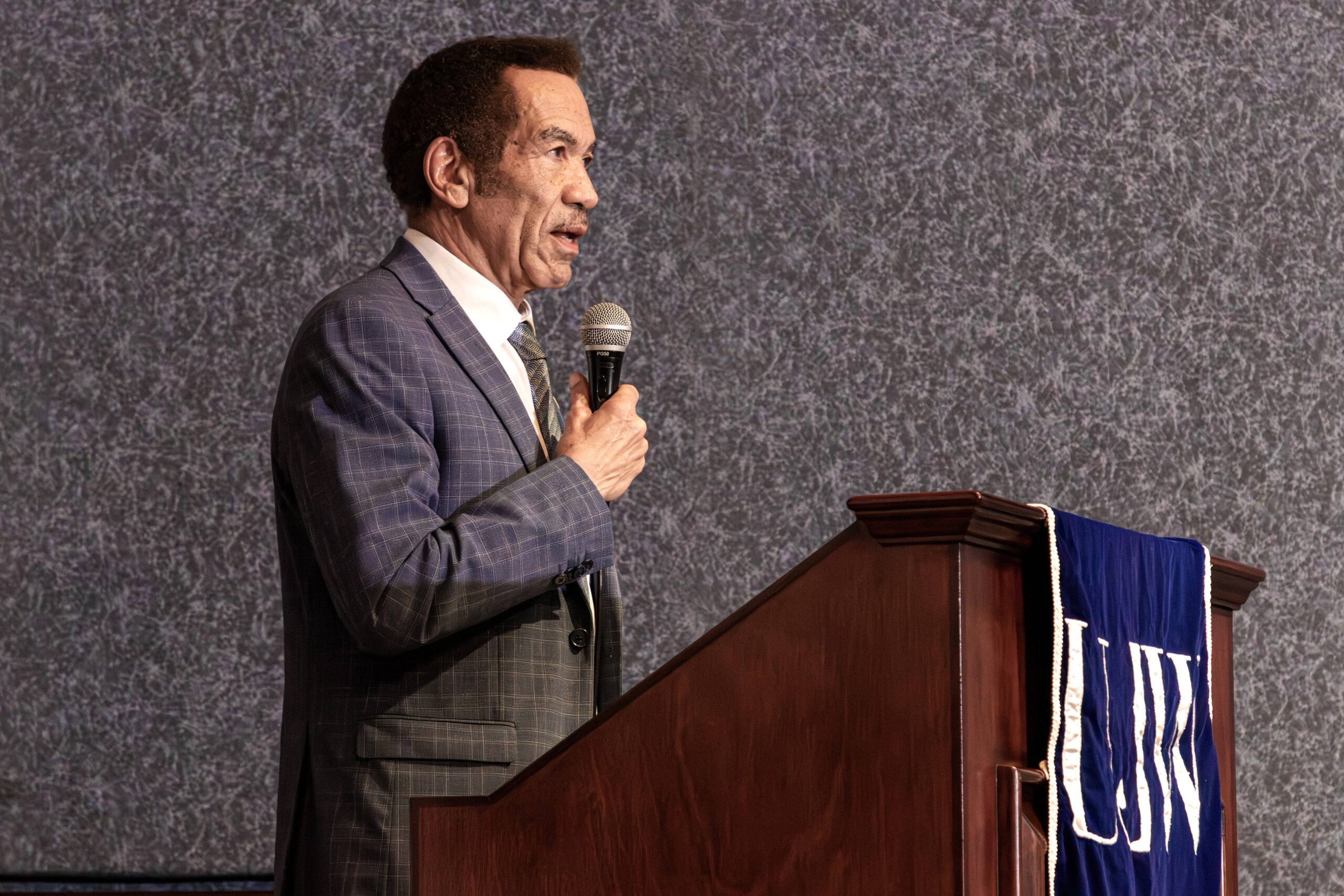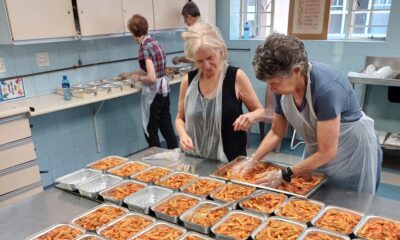
Featured Item

Africa in anti-democratic slide warns Botswana’s former leader
The four “Ds” that defined his two terms as the fourth president of Botswana from 2008 to 2018 were “democracy, development, discipline, and dignity”. He was a fierce critic of Robert Mugabe, and he condemned the latest in a string of dubious elections in Zimbabwe. He’s also a champion of wildlife conservation.
Seretse Khama Ian Khama, known as Ian Khama, was the guest speaker at the 33rd conference of the Union of Jewish Women (UJW) on Sunday, 3 September, held at the Rabbi Cyril Harris Community Centre (RCHCC) in Johannesburg. Founded in 1931, the UJW has been providing for the needs of the Jewish community and broader South African society ever since.
Asked about his outspoken views on Zimbabwe and yet another controversial election there in August this year, Khama said, “The 2008 elections were rigged, and since then, they have all been rigged. I didn’t recognise Robert Mugabe as president, and I wouldn’t attend any summit where he was present. This caused a stir in SADC [the Southern African Development Community]. I was one of his biggest critics. I wrote him an open letter asking him to step down as president.
“SADC has guidelines on what is considered a free and fair election,” Khama said. “Zimbabwe has violated it and the other presidents say nothing. This club of leaders stand by each other.”
Khama said it was “refreshing” that SADC observers had condemned the recent Zimbabwean elections – in a very unusual move for them. “They stood up and called what they saw.” He regrets that Botswana’s president congratulated Emmerson Mnangagwa on his dubious victory. Though he didn’t mention it, South Africa’s president has done the same.
Khama also spoke about his early life, his military and political career, and his passion for the environment. He said he was motivated by being of service to others, especially the poor and disadvantaged.
Khama was born in the United Kingdom (UK) in 1953. His parents, Sir Seretse Khama, who would go on to become Botswana’s first president, and Ruth Williams – a mixed-race couple – were in exile from the British protectorate of Bechuanaland. This was at the urging of the apartheid government in South Africa, which threatened to withhold mineral exports to the UK. His parents had met at Oxford University, and struggled to find a church or a registrar in the UK who would marry them. Eventually, the British government allowed them to return. “It was a telling contrast for my mother to come from a developed country to the dustbowl and poverty that was Botswana,” Khama said.
He spoke about attending a one-room school in Bechuanaland. He then went to school in Southern Rhodesia (today Zimbabwe) where he was the first non-white pupil and “the boys there never allowed me to forget that, every day of my life”. Thereafter, he was educated at a co-educational, multiracial school in Swaziland (today Eswatini), “much to the annoyance of the South African government, right on its doorstep”. He then went on to study at Sandhurst, the elite British military academy. He trained as a pilot and still flies today. He was foundational in the formation of Botswana’s army, eventually becoming its commander. “I was the only military-trained person in the country,” he said.
Khama said he had no intention of going into politics, but became vice-president and then president in 2008. One of his passions was nature conservation, and he deployed the army for anti-poaching activities, especially for extinction-threatened rhinoceroses. There were only five rhinos left in Botswana, and Khama moved them into a protected area in the centre of the country to allow them to breed safely. Later, about 50 rhinos were reintroduced into the wild, descended from the original five.
“I banned hunting. Without wildlife, there would be no tourism,” he said. He regretted that his successor has lifted the ban. Three-quarters of the rehabilitated rhinos have since been killed. He is today patron of several global environmental organisations.
Reflecting on the resurgence of coups d’état in Africa – with the latest being in Niger and Gabon – Khama said, “Some leaders embrace democracy only for as long as they are incumbents. Then, they rig elections.” He said some presidents considered themselves g-ds, who believe that only they could lead. “We’re seeing a mushrooming of anti-democratic leaders.”
Khama said South Africans should cherish their freedom to criticise government openly – a rarity on the continent.
He said he was “totally behind Ukraine, which is being brutalised by the Russians”, pointing to a pin on his jacket in the yellow and blue of Ukraine’s flag.
“We need more organisations like the Union of Jewish Women,” Khama said. “Maybe we need a Union of Women all over the world to join it in its good work. Its ideals resonate with my ideals and beliefs. I would like to commend the UJW for all the good work it has done consistently in South Africa for 92 years. It has changed lives for the better. I applaud them, and urge them to continue.”
An exhibition titled “Women of Action: A History of the Union of Jewish Women”, based on the new book of the same name by Karen Kallmann, was opened at the RCHCC.










